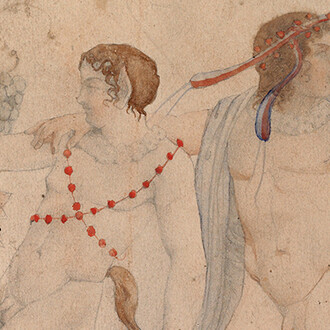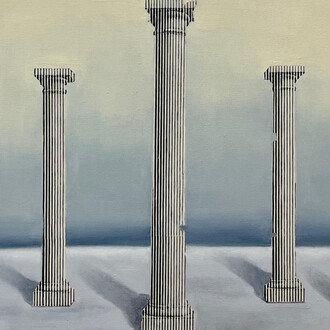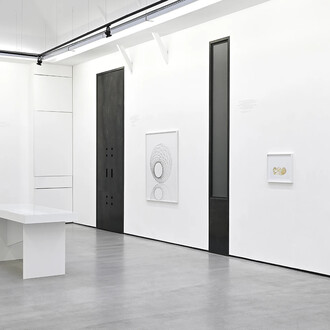VNH Gallery is delighted to announce the solo exhibition by artist Kon Trubkovich (born in 1979 Moscow, Russia) entitled “Minor Demons“ (22 November 2018 - 12 January 2019). This is his first solo exhibition in France. Kon Trubkovich’s practice explores memory and history through film, painting and sculpture. He is best known for his paintings, which incorporate stills from found movie footage and family home films of his Moscow childhood. Trubkovich casts the people, places and elements from the video stills into theoretical stages adding characters as he works and alternating narratives.
The dreamlike and puzzling environments elevate the video stills to a new subjective dimension, creating a vivid manifestation of the imperfect human grasp of the past through recollection. The paintings presented at VNH Gallery pull from intimate events; ruminations on fatherhood, on childhood tormentors and the memories and fantasies that come to replace youth. These are well worn interrogations for Trubkovich but now there is a sudden urgency. In the four “Boy paintings” childhood is shown in nocturnal desolation where boys cast shadows of the men who torment them or float alone, adrift at sea.
“Danse Russe” takes inspiration from a poem by William Carlos Williams in which, while his family sleeps an artist haunts his own house dancing naked with his image in the mirror, acknowledging his solitude. In his series “The Tormentors” Trubkovich works the faces of old family friends into new grimacing idols that recall byzantine icons. In “Compound”, a small boy lies against an adult’s body. The legs of another hanging body in the corner hints at a concealed act of violence that could draw the eye back to the boy. The video image of a cheerful reunion provides the background and the narrative dissonance.
In “Aril (after Contes Barbares)”, a lamp sourced from another still lights the way into strange scenery. Openly inspired by one of the most enigmatic Gauguin paintings titled “Les Contes Barbares”, 1902, Trubkovich casts himself as Jacob Meijer de Haan, a friend of Gauguin’s who the painter depicted as an appalling demon. In a series of works on paper titled “Anichka”, a seraphic face of a childhood infatuation becomes the backdrop for charcoal and color pencil drawings. Anichka, a friend’s older sister and an object of both fear and desire is the primer for Trubkovich’s ongoing inquiry into the overlay of fact and fiction.
















